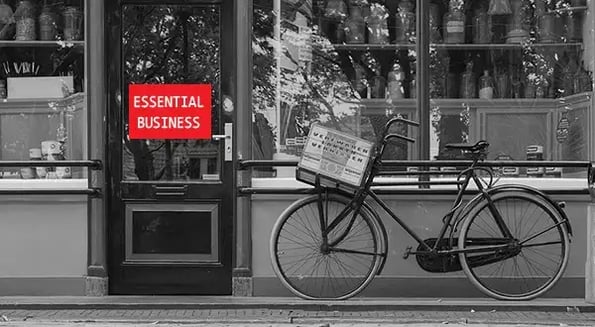Everybody can probably agree that it’s important for some businesses to stay open in the age of lockdowns — groceries, pharmacies, big-box stores.

But unless you’re into stockpiling yarn and googly eyes, arts-and-crafts retailers wouldn’t make the cut.
Even so, that hasn’t stopped chains like Michaels, Joann Fabric and Craft Stores, and Hobby Lobby from trying to keep their doors open in large swaths of the US.
Their efforts highlight a weird side effect of COVID-19-related shutdowns: When government guidance is unclear, businesses get crafty to show that they’re essential.
Even the government can’t agree on what essential means
The Department of Homeland Security finally published guidance on essential business last week, but its list is merely “advisory in nature.” That has opened the door for cities and states to make their own rules about what “essential” means.
The Washington Post found that their choices usually fit with stereotypes: Big biking cities like New Orleans, Philadelphia, and San Francisco have all designated bike shops as essential. In pot havens like Denver, Chicago, and the state of California, marijuana dispensaries are open.
But when local guidance isn’t explicit, individual stores get to decide for themselves — at least until officials step in:
- The luxury department store Dillard’s is staying open even as its competitors close.
- Guitar Center is keeping open about 25% of its locations.
- In Ohio, mattress stores and golf courses have claimed their customers need them.
- GameStop initially tried to convince legislators that it served an essential purpose — then switched to delivery only last week after backlash.
In response to the Joann Fabric hijinks, some municipalities have issued follow-up orders clarifying that craft stores are not essential.
Vague guidelines have created some strange patchworks: While the Los Angeles sheriff is shutting down gun shops, his colleague in nearby San Diego has insisted that firearms retailers should stay open.
It all comes down to the Benjamins
As The New York Times noted, many of the stores stretching the word “essential” to its breaking point have something in common: crippling debt.
Guitar Center and Joann Fabric and Craft Stores were in the red before the pandemic. That makes the idea of shuttering for months especially precarious — and the incentive to ordain yourself essential that much stronger.
